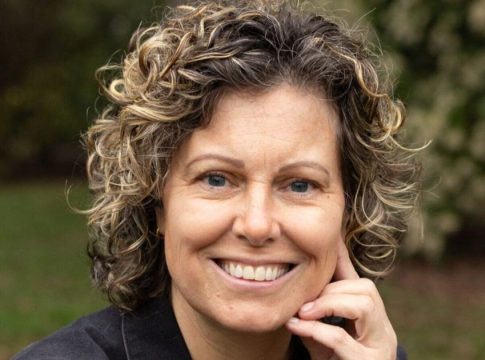The Emerging Role of Psilocybin in Treating PTSD: A Compassionate Exploration
Understanding the Shift in Therapy Approaches
Kate Schroeder’s journey into the world of psychedelic therapy began unexpectedly when a client suggested using psilocybin, commonly known as magic mushrooms, for treating post-traumatic stress disorder (PTSD). Initially hesitant, Schroeder quickly became intrigued after researching clinical studies and engaging with experts in the field. This curiosity has grown into a professional commitment as she now offers psychedelic-assisted therapy in states where it is legally permitted.
The Therapeutic Potential of Psilocybin
Schroeder’s practice, Transformation Counseling, now includes services utilizing psilocybin in Oregon and Colorado. Here, individuals seeking relief from deep-rooted psychological trauma can engage in a therapeutic process that differs fundamentally from traditional treatments. Research from institutions like Washington University School of Medicine has shown that psychedelics may offer significant benefits for hard-to-treat psychiatric issues, including PTSD.
Bridging the Gap Between Conventional Therapy and Psychedelic Experiences
Psychedelic therapy is not about evading the tough emotional battles that therapy often entails; it represents a unique pathway to deeper self-understanding. Schroeder emphasized that such experiences can allow individuals to access layers of fear and trauma that remain hidden in conventional therapy, highlighting her work with a long-standing client who found profound relief after a psilocybin session.
Client Experience and Safety Considerations
In a comforting, controlled environment, clients undergo sessions featuring meditation music and eye masks to encourage introspection. As a certified psilocybin facilitator, Schroeder focuses on creating a safe space, offering guidance only as needed. Preparation for these sessions is crucial; clients are encouraged to adopt a cleansing diet and minimize exposure to stressors in the week leading up to their experience, fostering emotional and physical well-being.
Legislative Developments and Veteran Support
In Missouri, where Schroeder’s clients often travel from, lawmakers have been considering the potential of psilocybin to assist combat veterans grappling with PTSD. While past legislative efforts have faced challenges, recent discussions highlight a growing openness among lawmakers who have explored the research supporting psychedelic treatment. Representatives, once skeptical, now advocate for a thoughtful approach to exploring these options.
A Broader Conversation on Mental Health Resources
The rising interest in psilocybin therapy reflects a larger dialogue about effective mental health treatments. Many individuals, especially veterans coping with the devastating impacts of trauma, find themselves at a crossroads where conventional methods often fall short. As a powerful form of therapy, psilocybin may offer pathways toward significant healing and recovery.
Empowering Individuals on Their Healing Journeys
Whether you’re exploring therapeutic options or supporting a loved one in their journey through trauma, it’s essential to remain informed and open-minded. As research expands and experiences emerge, the conversations surrounding psychedelics in therapy encourage us to reevaluate our understanding of healing.
In conclusion, the exploration of psilocybin as a therapeutic tool is a promising chapter in mental health treatment. As we shift our perspectives and engage with new possibilities, we can foster a more comprehensive approach to mental wellness that respects both traditional methods and innovative practices.

Covers wellness, nutrition, mental health, and daily life tips.
Bio: Talia brings a background in health journalism and holistic living to help readers live better, one tip at a time.

